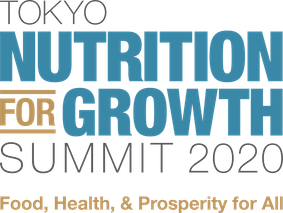World Food Day 2021

"Our actions are our future. Better production, better nutrition, a better environment, and a better life." ..
In his message for World Food Day today, 16th October 2021, Pope Francis wrote in a message to Qu Dongyu, the Director-General of the UN's Food and Agriculture Organisation:
"The annual celebration of World Food Day brings us face to face with one of humanity's greatest challenges: overcoming hunger once and for all is an ambitious goal" .. "The pandemic gives us the opportunity to change course and invest in a global food system that can deal sensibly and responsibly with future crises."
Clearly Pope Francis is aware that the world is not on track to meet the Sustainable Development Goals (SDGs) or any of the six World Health Assembly global nutrition targets. Tackling malnutrition does not feature heavily on the agenda of the UN Food System Summit, which mainly promotes the interests of big corporations' investments in innovative agriculture, despite the call of grassroots organisations and human rights agencies to meaningfully address the right to adequate food as the main objective of transforming food systems.
In 2013 the UK government hosted the first ever Nutrition for growth summit at which it pledged £1.25 billion to tackling malnutrition until 2020. In 2015, the then Department for International Development made a commitment to reach 50 million people with nutrition-relevant programmes by 2020. Staggeringly the commitment was met early and the UK exceeded the target, reaching 50.6 million women and girls with nutrition programmes between 2015 and 2020.
Now the money has run out and as yet the UK has made no new commitments to tackling malnutrition. We are coming towards the end of the Year of Action on nutrition, as we approach the next Nutrition for Growth Summit (N4G) in Japan on 7-8 December this is a chance to galvanise financial and policy commitments to improving global nutrition. The Nutrition for Growth Summit was originally planned for last year, but was postponed because of COVID-19. Sadly, the UK Government has not yet committed to making a pledge at the Nutrition for Growth Summit, and action on nutrition is being threatened by a lack of political engagement.
Nutrition is an essential part of a healthy and productive life and is vital to a child's growth and development. Nearly half of all deaths of children under 5 are related to undernutrition, and children under 5 with severe acute malnutrition are 9 times more likely to die from preventable diseases than well-nourished children.
The COVID-19 pandemic has significantly disrupted healthcare systems and access to nutrition services. Already inadequate food systems have also been disrupted, and people have faced economic barriers to accessing nutritious food. Malnutrition resulting from the pandemic could prove deadlier than COVID-19 itself, and it is estimated that global rates of malnutrition among under 5s may increase by almost 40%. Malnutrition is a risk factor for developing severe COVID-19 symptoms and may reduce the efficacy of COVID-19 vaccinations
The cuts to Official Development Assistance announced by the Foreign Secretary on 21 April will disproportionately affect nutrition programmes for it is estimated that nutrition programming has been cut this year by an estimated 80%)
In her speech to the Conservative party conference earlier this month newly appointed Foreign Secretary, Liz Truss said: "On development … I will be focusing on women and girls - I want to make sure more girls get a quality education.."
I am glad to hear that, for nutrition is an essential tool to support women and girls to achieve equal health, education, and earning outcomes. Malnutrition is the single largest cause of death among women, killing women more than any other risk factor. It is well known that in many parts of the world women are more likely to eat 'last and least' in their households and face more barriers to accessing healthy food than men. More than 1 billion women experience at least one form of malnutrition, with higher rates of anaemia than men.
The COVID-19 pandemic has exacerbated the existing burden of malnutrition in women and girls. It has resulted in the significant loss of wellbeing and opportunities in life for women and girls and demonstrates the need for nutrition to be treated as a human right and a gender equality issue. Women and girls have a fundamental right to health and good nutrition.
Therefore, it is vital that nutrition is embedded into our government's development strategies across sectors to help address and overcome barriers. Now, in the run-up to the Nutrition for growth Summit, we need to reiterate the importance of nutrition and call for a funding commitment from the Government.
For more information and advice see: www.results.org.uk/news/nutrition-growth-it%E2%80%99s-time-commit


















